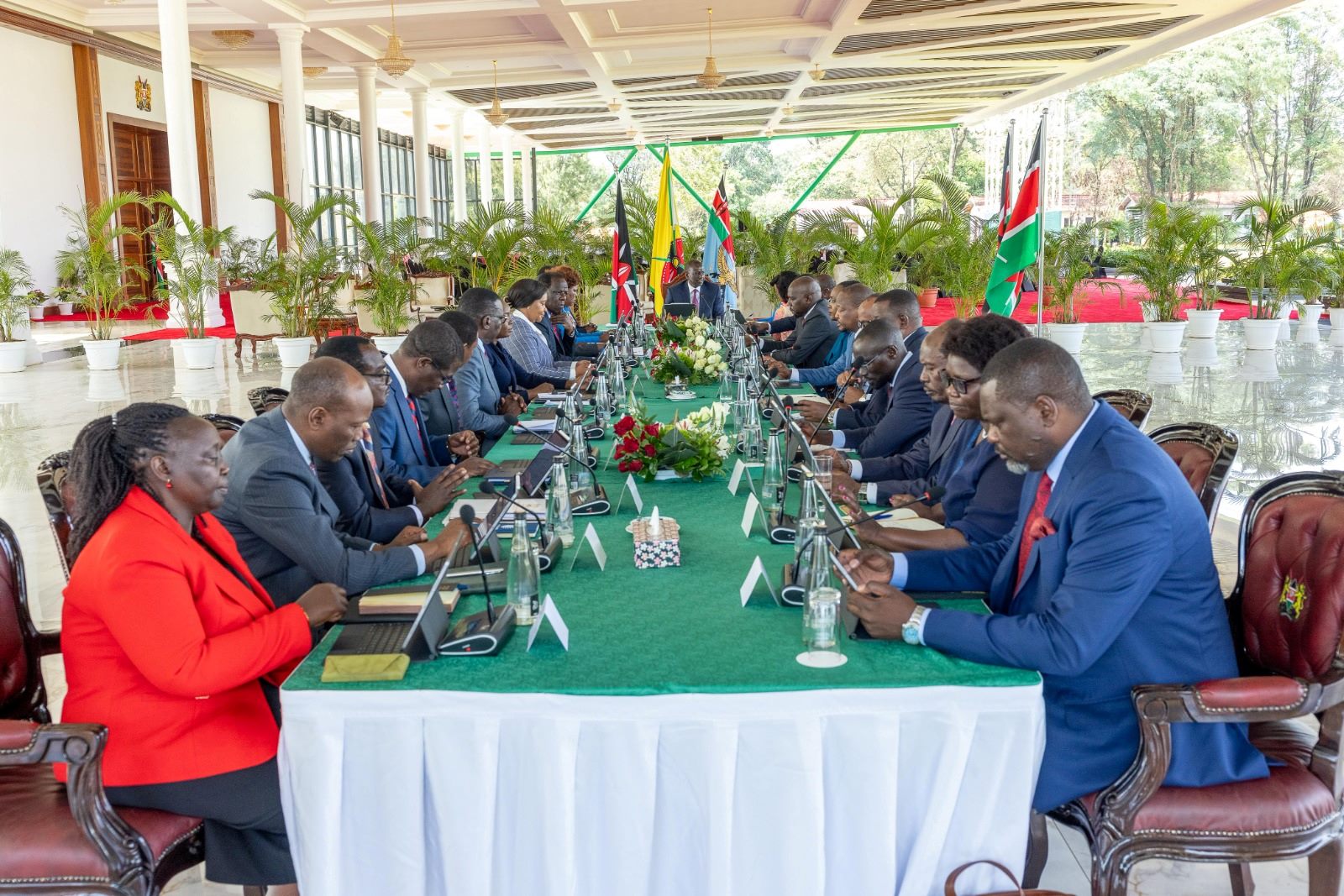Cabinet approves Finance Bill, 2025, targets tax loopholes

The Bill proposes amendments to the Income Tax Act, VAT Act, Excise Duty Act, and the Tax Procedures Act aimed at addressing delays in revenue collection.
The government approved the Finance Bill, 2025, aimed at tightening tax administration, curbing revenue leakages, and improving efficiency in tax processes without introducing new tax burdens on Kenyans.
In a Cabinet meeting held on Tuesday at State House, Nairobi, chaired by President William Ruto, the Bill was approved with a focus on sealing loopholes that have historically allowed the misuse of tax provisions.
More To Read
- From detention to global recognition: Rose Njeri named in 2025 Time100 Next list
- How protests over Finance Bill hurt Nairobi’s daily revenue collections
- Treasury reports fastest tax growth in two years amid July protests
- Cabinet approves 40 per cent top-up for road contractors, gives nod to KPC privatisation
- Cabinet approves Bill to combat healthcare malpractice, enhance patient safety
- High Court petition filed to halt Ruto's Finance Act, citing economic hardship
This includes inflated tax refund claims that have led to losses in public funds. The proposed law intends to enhance tax collection and administration rather than increase tax rates.
The Finance Bill, 2025, introduces key changes to streamline the tax system. It proposes amendments to the Income Tax Act, VAT Act, Excise Duty Act, and the Tax Procedures Act. These changes are aimed at addressing delays in revenue collection and cutting down on legal disputes related to taxation.
“Key provisions include streamlining tax refund processes, sealing legal gaps that delay revenue collection, and reducing tax disputes by amending the Income Tax Act, VAT Act, Excise Duty Act, and the Tax Procedures Act,” reads the cabinet dispatch.
Among the notable reforms is a move to improve the tax refund process, making it more efficient and reducing delays that have affected both individuals and businesses.
The government seeks to remove legal grey areas that have allowed prolonged disputes, which often delay the flow of revenue to the National Treasury.
To support small enterprises, the Bill, according to the cabinet, offers a major incentive by allowing them to fully deduct the cost of everyday tools and equipment in the year of purchase.
This will help eliminate the long waits currently experienced when applying for tax relief, enabling businesses to free up cash flow and focus on growth.
Win for retirees
Additionally, the Bill provides a major win for retirees. All gratuity payments—whether from public service or private pension schemes—will now be fully exempt from taxation. This measure aims to secure financial dignity for retirees and ease the burden on senior citizens after years of service.
The Bill also introduces a mandatory requirement for employers to automatically apply all eligible tax reliefs and exemptions when calculating Pay As You Earn (PAYE) taxes. This change addresses the ongoing issue where many employees miss out on tax reliefs because employers fail to apply them, forcing workers to manually seek refunds from the Kenya Revenue Authority.
“Employers will also be required to automatically apply all eligible tax reliefs and exemptions when calculating Pay As You Earn (PAYE) taxes for employees. Currently, many employers omit these reliefs, forcing employees to seek refunds from the Kenya Revenue Authority,” reads the despatch.
According to the Cabinet, these reforms are aligned with the Bottom-Up Economic Transformation Agenda (BETA) and represent a firm step by the government to build a fairer and more inclusive economic system.
While the Bill does not propose new tax increases, it is designed to maximise the effectiveness of existing tax systems and ensure that every shilling due to the government is collected and used transparently. By plugging loopholes and boosting compliance, the government hopes to enhance fiscal responsibility and restore public confidence in the tax regime.
The Finance Bill, 2025, is expected to be tabled in Parliament in the coming weeks for further scrutiny and approval, paving the way for its implementation.
Top Stories Today












































